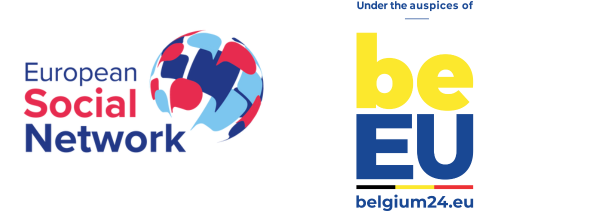In the framework of the 2023 European Social Services Conference, the journal, Social Services collaborated with the European Social Network to produce a series of articles from conference contributors on the theme of the digital and technological transformation of social services.
The following article is a summary of the paper submitted by Charney Weitzman and Jan Perrin of ESN member, Tusla (Ireland) describing the implementation of their virtual learning programme for the delivery of child safeguarding training.
The full report can be found here.
In response to the challenges posed by the COVID-19 pandemic, Tusla Children First Information and Advice Service (CFIAS) in Ireland underwent a transformative journey from traditional classroom-based training to adopting virtual learning. Before the pandemic, CFIAS delivered child safeguarding training through direct sessions. However, public health restrictions in March 2020 disrupted their conventional training methods, necessitating a shift to virtual learning.
The CFIAS, consisting of a small team of 11 members, faced significant challenges due to the pandemic restrictions. The lack of ICT infrastructure further compounded the difficulties. Challenges posed by the fluidity and uncertainty of public health restrictions made planning and developing solutions challenging for the CFIAS.
To address these challenges, the CFIAS implemented a multifaceted strategy. Despite limited expertise in the IT field, the team engaged in collaborative efforts, drawing on experiences from and developing a working partnership with Tusla’s Workforce Learning and Development section, which was also grappling with similar challenges. Through this intra-agency partnership, the CFIAS was able to access a WLD colleague with experience in digital instructional design who provided advice and information on software packages, temporary use of a software licence, and supported access to in-house training.
In addition to this, CFIAS reflects on key lessons learned during that period, emphasizing the importance of revising outdated materials, embracing multimedia-rich learning environments, and addressing resistance to change. The team engaged in self-directed learning and received training on instructional design and eLearning theory to enhance their capabilities.
Key strategies included revisiting and revising PowerPoint decks for remote delivery, collaborating with Tusla’s WLD for expertise and resources, and acquiring licenses for animation and video editing software. The team successfully created impactful explainer videos and a self-directed eLearning module for mandated persons, receiving positive feedback and prompting further development of resources.
The CFIAS’s experience demonstrates the transformative impact of technology on expanding outreach and overcoming challenges in delivering child safeguarding information. In summary, the CFIAS successfully navigated the shift from classroom to virtual learning, leveraging collaboration, self-directed learning, and technology to develop a suite of resources with significant reach and positive user feedback.

